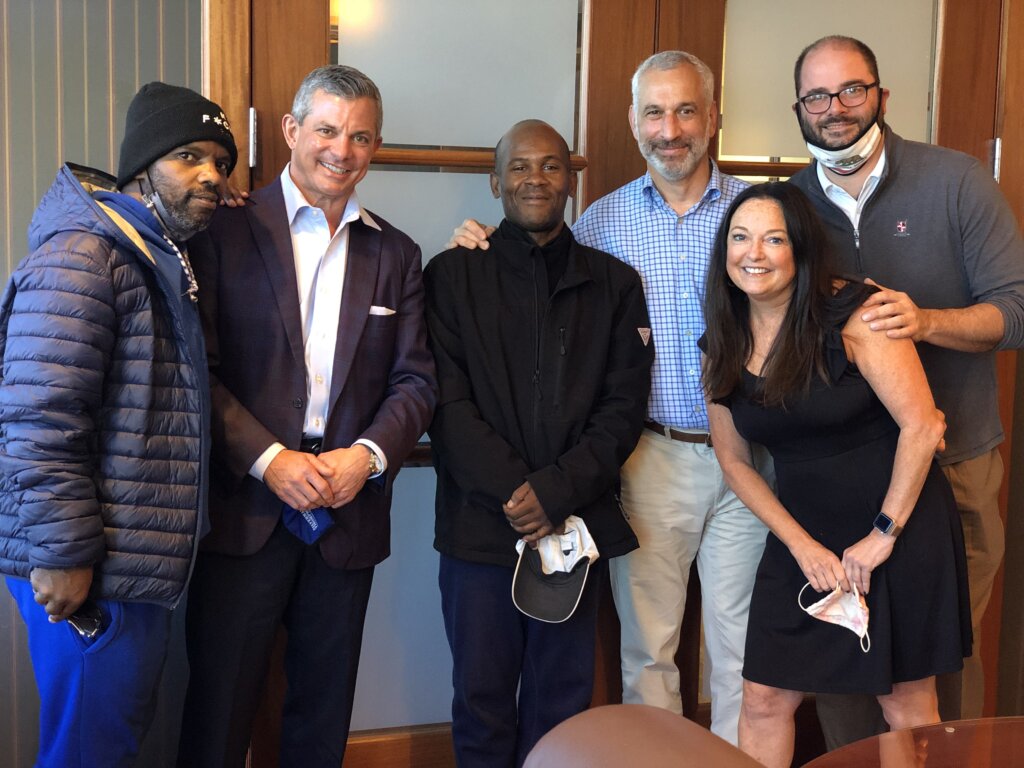 Baltimore City has paid nearly $8 million to Umar Burley and Brent Matthews, two men who spent a combined ten years and nine months in prison after Baltimore Police Department officers planted heroin in Mr. Burley’s car. Brown, Goldstein & Levy attorneys Andrew Freeman, Chelsea Crawford, and Neel Lalchandani jointly represented Mr. Burley and Mr. Matthews along with attorneys from Silverman, Thompson, Slutkin, and White.
Baltimore City has paid nearly $8 million to Umar Burley and Brent Matthews, two men who spent a combined ten years and nine months in prison after Baltimore Police Department officers planted heroin in Mr. Burley’s car. Brown, Goldstein & Levy attorneys Andrew Freeman, Chelsea Crawford, and Neel Lalchandani jointly represented Mr. Burley and Mr. Matthews along with attorneys from Silverman, Thompson, Slutkin, and White.
The settlement is among the largest in Maryland history involving allegations of police misconduct. The lawsuit alleged that in April 2010, BPD officers working in a plainclothes unit and driving unmarked cars ambushed Mr. Burley and Mr. Matthews while the two men were sitting in Mr. Burley’s car. Because the officers did not identify themselves and had their guns drawn, Mr. Burley and Mr. Matthews feared a robbery was underway and fled, colliding with another car at an intersection. The driver of the other car later died from his injuries. Mr. Burley and Mr. Matthews were apprehended by the BPD officers.
The officers searched Mr. Burley’s car but found no evidence of drugs or weapons. To justify their illegal conduct that resulted in the car crash, the officers placed 32 grams of heroin on the floor of the car. Mr. Burley and Mr. Matthews were charged with federal drug possession and distribution offenses and ultimately convicted of the charges. As a result of the officers’ misconduct, Mr. Burley served over seven years in prison, and Mr. Matthews spent almost three-and-a-half years incarcerated and an additional three years under supervision.
During the FBI’s investigation into the corrupt Gun Trace Task Force, federal prosecutors discovered that officers had planted heroin in Mr. Burley’s car. Once that misconduct came to light, the courts vacated Mr. Burley’s and Mr. Matthews’ convictions.
Brown, Goldstein & Levy and Silverman, Thompson attorneys filed a Section 1983 action in federal court against the Baltimore Police Department and seven of its former officers for deprivation of Mr. Burley’s and Mr. Matthews’ constitutional rights.
The settlement was reached after more than two years of litigation, including an appeal to the United States Court of Appeals for the Fourth Circuit. The settlement closes a long and painful chapter in Mr. Burley’s and Mr. Matthews’ lives. Both men plan to rebuild their lives and heal from the trauma that the wrongful convictions and incarcerations caused.